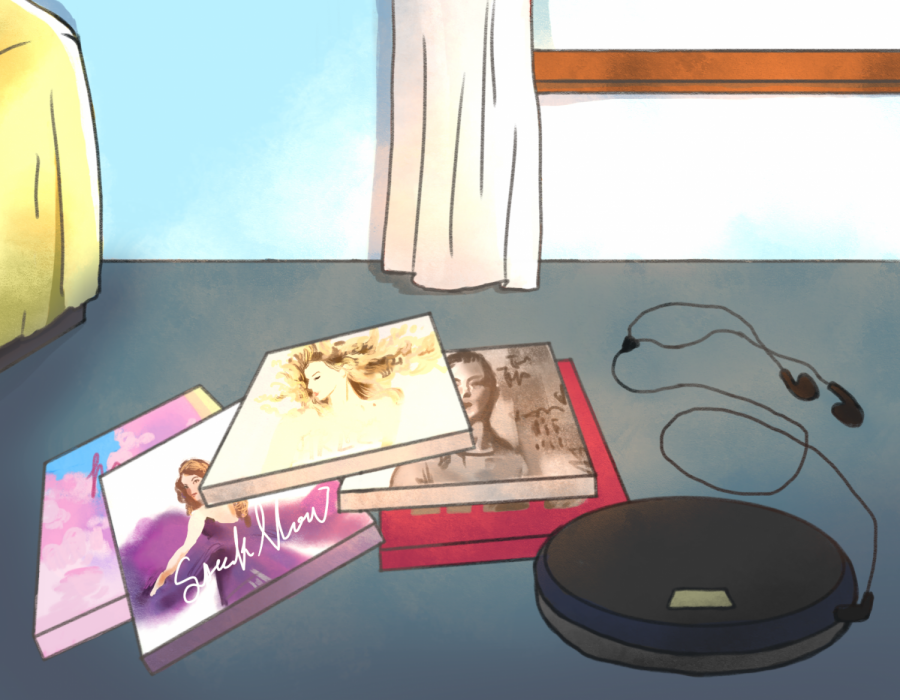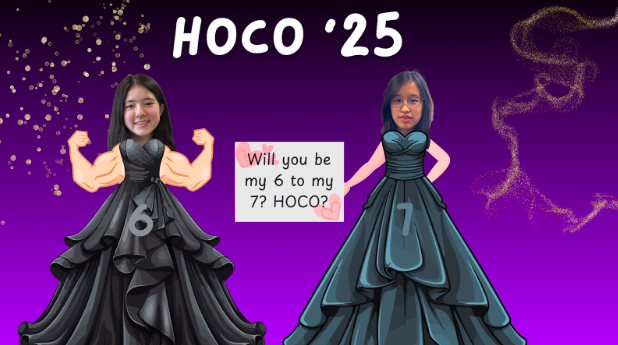Taylor Swift: An era-defining artist
March 3, 2021
“I could build a castle out of all the bricks they threw at me,” a 25-year-old Taylor Swift sings in the popular bonus track “New Romantics” from her 2014 album 1989. Swift has no idea of what is to come: her decision to take her albums off of Spotify, her lawsuit against David Mueller for sexual harassment, the loss of all of her studio albums to her former record, and her surprise release of two albums in 2020 that took the world by storm. Taylor Swift—the undisputed queen of red lipstick and teenage girls—is an era-defining musician. She has displayed the uncanny ability to survive attacks on her personal life, her musical ability, and her success as a whole and come out without a scratch. Taylor Swift is a name that needs to be added to the list of the musical greats.
Numbers don’t lie, and Swift’s track record speaks for itself. Swift has sold over 170 million records worldwide. She has 10 Grammy wins and her albums Fearless and 1989 are the most awarded albums in history. She is the first artist since the Beatles to have four consecutive albums spend six or more weeks at the Billboard #1 spot. She is one of seven acts total, and the second woman after Whitney Houston, to have more than one album top the charts for more than ten weeks. Her fifth studio album and chartbusting pop extravaganza, 1989, is the only album in history to have five singles in the Billboard Top 100. Her Instagram followers and music video views creep up by the second, and every album that comes out dominates pop culture. It’s easy to look at her feel-good pop songs and high school dance music and bet that her fans are limited to a certain demographic, but Swift is truly loved by more than just the tween girls we all limit her to.
Swift has also faced numerous challenges with the media and her stardom on her path to pop industry domination. Many of her songs are about her past relationships with famous singers and actors, and she is frequently photographed with her significant others. The media frequently bases interview questions and articles on her personal life, and just as recently as Monday, Swift tweeted a criticism of the Netflix show Ginny and Georgia for saying a character “went through men faster than Taylor Swift.” The truth is that Swift receives an unparalleled, unprecedented amount of hate for her personal life; if she were a male pop star, she would have been left alone, or even lauded for her numerous relationships. Just take a look at how Harry Styles, Nick Jonas, and Justin Bieber, her pop counterparts, have been supported for their personal choices as Swift faces constant backlash.
She has also battled public criticism for how she handled her sexual harassment suit and her public issues with Kanye West, who mentioned her name in a song without permission. What we fail to realize is that Swift’s legal or personal business is not our business. As an audience, when we fault her for her relationships and personal matters, we send the message that we have double standards for female icons. As we focus on her feuds and relationships, we dilute the attention her musical and marketing genius deserves, setting her farther back on her path to era-defining success.
An NPR article from 2008 by Marc Hirsh, a writer with a specialty in TV show critiques, is titled, “Hey, Has Anybody Noticed That Taylor Swift Can’t Sing?” Hirsh says she “can’t carry a tune” and describes her as someone who is “sweetly, genuinely untalented” while snidely remarking that none of her numerous awards at the AMAs have the word “best” in them. Besides simplifying her marketability to teen girls as “sweetness” and discrediting her awards, Hirsh is in the wrong. Numerous vocal coaches and experts have described that the core of Swift’s talent is in her strong breath control and ability to create vocal variations that suit the genre she is in. Swift is also a skilled guitarist and writes all of her songs. Her success lies in her ability to write songs that are catchy, lovable, and oftentimes filled with deep, relatable meanings. Hirsh places too much importance on being able to flashily sing songs purchased from professional songwriters; Swift isn’t a Mariah Carey or Ariana Grande, and she is not trying to be. Critics like Hirsh choose to hate on Swift’s success because her brand of success doesn’t match their vision, but they fail to understand that a song is not made only by how advanced or unique the vocals are—musical success largely depends on marketability and attention-grabbing hooks.
Beyond being able to survive media controversy, showcase one’s talent, and generate sales, the highest league of musicians are best defined by their influence. Among young girls, Swift has popularized breathy pop songs and red lipstick, but she has also popularized biting back at interviewers that ask too many questions about her relationships and spread awareness about her fight against sexual harassment. She has pushed country music back into the spotlight, broken records set by previous musical greats, and inspired the likes of Oliva Rodrigo and Billie Eilish to embark on their own musical journeys. Her songs dominate the radio, Spotify playlists, and now, TikTok. Swift’s music is not necessarily everyone’s music, but each of her songs allow her to tell her own story and allow us to remember where we were when those songs were popular. She has a substantial impact on teenage girls and a pivotal, overlooked influence on music as a whole, and she has paved a path for storyteller turned musicians. Swift deserves better than we give her as listeners. We need to recognize her greatness.



